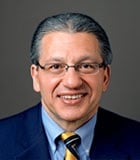 |
| Last year was Pfizer's first full year with generic competition for Lipitor--courtesy of Pfizer |
Pfizer ($PFE) racked up a 46% increase in full-year profits. But its sales fell 10%. How so? Pfizer's sale of the nutrition business, which went to Nestle for $11.85 billion, helped boost reported net income to $14.57 billion. It also helped that 2011 profits suffered from a host of legal charges. On an adjusted basis, Pfizer's 2012 profits dropped 8%.
Last year was Pfizer's first full year with generic competition for its biggest all-time seller, Lipitor. That's why primary care sales dropped 31% to $15.558 billion. By itself, the cholesterol drug lost 59% of its worldwide sales--and 81% in the U.S. From $9.577 billion in 2011, Lipitor faded to $3.948 in 2012. Overall, pharma sales dropped 8.8%.
But if anything, Pfizer's results show that shrinkage can be a positive thing. After all, the market loves the fact that Pfizer sold off its nutrition business, and that it's spinning off its animal health operation, Zoetis, beginning with an IPO at the end of this week. Indeed, analysts would like to see CEO Ian Read continue hiving off divisions--namely consumer health and generics. They pounce on any hints to that effect.
 |
| CFO Frank D'Amelio |
Plus, as CFO Frank D'Amelio points out, Pfizer's costs are shrinking, too. Pfizer sliced some $4.5 billion from certain costs, including R&D, sales and administrative expenses.
Sales, spinoffs and cost cuts help generate cash--or, in the case of the Zoetis IPO, pay off debt--making it possible for Pfizer to continue buying back shares. In fact, D'Amelio said the company will be "considering other value-creating opportunities"--shareholder value, that is--"with the return on share repurchases remaining the case to beat."
Analysts praise that shareholder-minded attitude; as Sanford Bernstein analyst Tim Anderson told Bloomberg, "Management has been viewed as being responsive to shareholder concerns and seems to be pulling whatever levers it can to make its share price go higher."
And meanwhile, Pfizer can highlight its newer products: Lyrica, with 13% growth worldwide to $4.158 billion. Prevnar/Prevenar 13, with 2% growth to $3.718 billion. Sutent, with 4% growth to $1.236 billion. And so on. More importantly, perhaps, it can cite the newly approved Eliquis, which promises to become the anticoagulant to beat, and Xeljanz, a first-in-class rheumatoid arthritis remedy. Maybe these will help reverse Pfizer's pharma sales decline.
- read the Pfizer release
- get more from Bloomberg
Special Reports: Lipitor - The 15 best-selling drugs of 2012 | Pfizer - The Biggest R&D Spenders In Biopharma